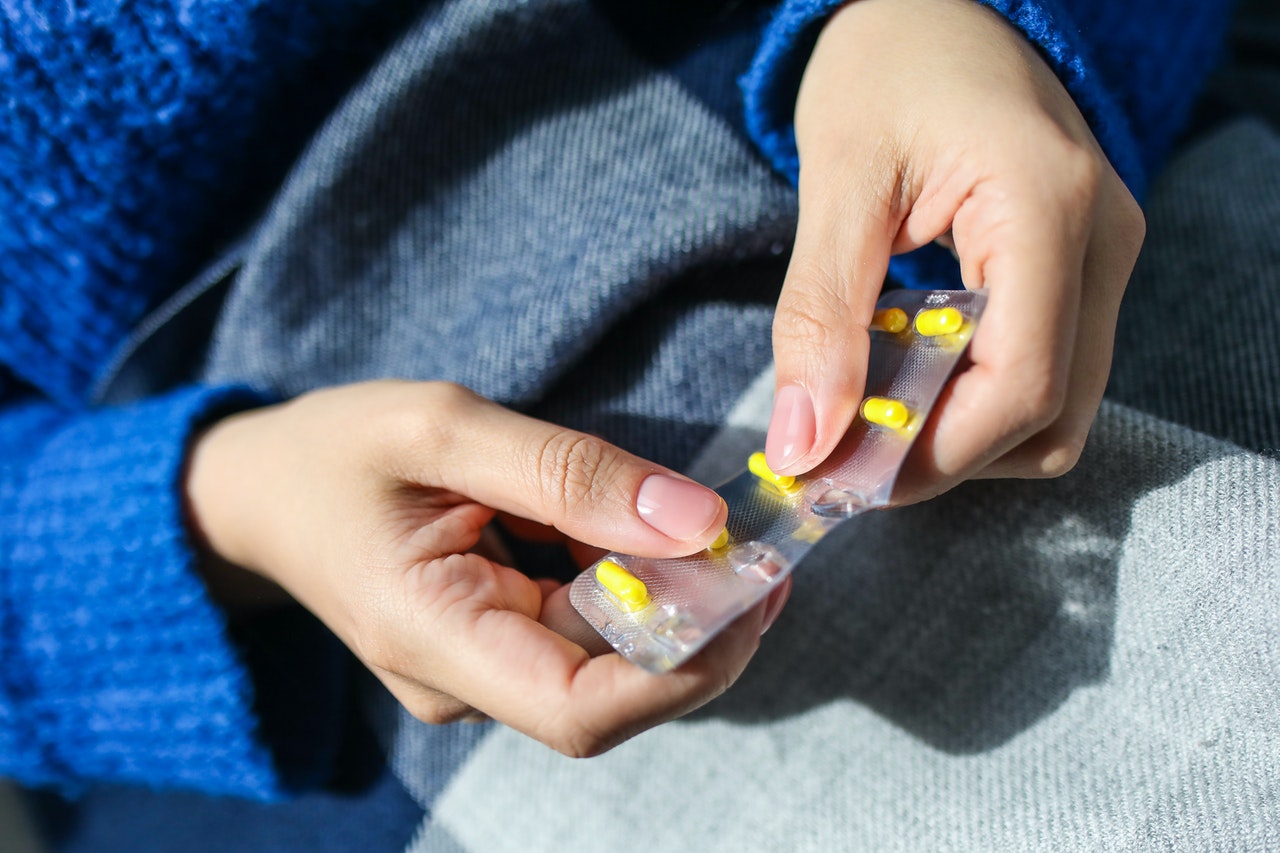All about Lagevrio (molnupiravir): the first oral antiviral against COVID-19 | New COVID-19 Medicine
Last updated: 15 March 2022

You can legally access new medicines, even if they are not approved in your country.
Learn howArticle reviewed by Dr. Jan de Witt
On the 4th of November 2021, the Medicines and Healthcare products Regulatory Agency (MHRA) of the UK approved Lagevrio (molnupiravir) after reviewing its safety and effectiveness. Molnupiravir is the first oral antiviral for COVID-19 to be approved and the UK is the first country to approve it.
MHRA considers molnupiravir effective at reducing the risk of hospitalisation and death and authorised it for use in people who have mild to moderate COVID-19 and at least one risk factor for developing severe illness.
What makes molnupiravir different than other treatments is that it’s an oral tablet that could, depending on the type of approval it receives in each country, be taken outside of the hospital. The projected cost of around $700 per person for a 5-day course is cheaper than other treatments (such as remdesivir, an antiviral injection that costs $3,120 per treatment course), but not yet affordable as an over the counter medicine.
Molnupiravir is available for patients outside of the UK on a compassionate use or a named patient basis. Learn more by jumping to the section "Accessing Lagevrio (molnupiravir) outside of the UK”.
What is Lagevrio (molnupiravir)?
Molnupiravir is an orally administered antiviral medication that inhibits the replication of certain RNA viruses, and is used to treat COVID-19.
Molnupiravir is not a new treatment developed specifically for the coronavirus SARS-CoV-2. Research began in 2003 and it was initially developed to treat influenza at Emory University’s non-profit company DRIVE (Drug Innovation Ventures at Emory) in Atlanta, USA. In 2015, DRIVE’s chief executive George Painter offered it to a collaborator, virologist Mark Denison at Vanderbilt University in Nashville, to test against coronaviruses and found it worked against coronaviruses like MERS and mouse hepatitis virus.
When the pandemic started in early 2020, DRIVE licensed molnupiravir to Ridgeback Biotherapeutics, a biotechnology company that had previously developed a monoclonal antibody for Ebola, in hopes to fight against the coronavirus SARS-CoV-2 that causes the COVID-19 disease. Ridgeback soon partenered with the pharmaceutical giant Merck to accelerate its development.
The Emory researchers named their drug molnupiravir, after Mjölnir—the hammer of Thor.
How does Lagevrio (molnupiravir) work?
Mechanism of action
When SARS-CoV-2 enters a cell, the virus needs to duplicate its RNA genome to form new viruses. Molnupiravir gets incorporated into RNA strands and mutates in random ways, so the virus then duplicates with mutations and over time, it causes more mutations that eventually kill the virus.
"That is what we term lethal mutagenesis. The virus essentially mutates itself to death.” says Richard Plemper, a virologist at Georgia State University in Atlanta.
Because the mutations accumulate randomly, it’s difficult for viruses to evolve resistance to molnupiravir, which means the drug is effective against COVID-19 variants.
A full course treatment consists of four pills taken twice a day for a total of five days, starting no later than five days after the onset of symptoms.
Clinical trial
The latest trial, a Phase III trial conducted by Merck, was carried out globally in over 170 trial centers. The selected patients were required to have at least one risk factor associated with poor disease outcome (such as diabetes or heart disease) and received molnupiravir or placebo after they observed mild to moderate symptoms.
According to an interim analysis assessing results from 775 subjects, molnupiravir lowered hospitalisation or mortality risk by nearly 50% and was effective against all variants, including the Delta variant. From the group that was given molnupiravir, no deaths were observed, as opposed to 8 deaths in the placebo group.
A previous trial showed no benefit in treating patients already in the hospital with COVID-19.
Merck is not the only company to research molnupiravir. In October, two Indian drugmakers, Aurobindo Pharma Ltd and MSN Laboratories, independently testing generic molnupiravir in people with moderate COVID-19 symptoms on a mix of unhospitalised and hospitalised individuals wanted to end late-stage trials due to not seeing significant improvements, but to continue trials for people with mild symptoms who have not been hospitalized. Merck spokespeople say that the Indian companies define "moderate illness” differently than the US and have included in their research people that have had "severe illness” by US definitions.
Some experts however doubt the usefulness of the drug.
Dr. Peter English, a retired consultant in communicable disease and a past chair of the British Medical Association Public Health Medicine Committee, said: "The problem for antivirals like Merck’s molnupiravir is that they would have to be used before people are (usually) deemed ill enough to need anything other than symptomatic self-care treatment. Unless an antiviral medication could be made so cheap and so safe that it can be used ‘on spec’ by people who might have COVID-19, [it is] unlikely to be widely useful”.
Safety concerns
Some experts have raised safety concerns due to molnupiravir’s mechanism of action. Molnupiravir causes viral RNA to mutate and there are concerns that it could cause other cells to mutate as well, causing cancer or causing abnormalities in developing fetuses. One study in animal cell cultures found mutations in cells treated with molnupiravir.
Merck’s clinical trials did not include pregnant or breastfeeding women among the participants and women of childbearing potential had to use contraceptive methods for the duration of the study or be abstinent (men were also requested to use contraception or be abstinent). In the conditions to participate, Merck writes "Treatment with EIDD-2801 is contraindicated in women who are pregnant or nursing and in the male partners of women who are pregnant.”
Dr. Peter Hotez, an infectious disease specialist at the Baylor College of Medicine, notes there isn't any reason to think that molnupiravir would interfere with human genetics: "It's more of a theoretical concern, but it's something to keep in mind."
MHRA writes, in its recent documents attesting the approval of molnupiravir in the UK, that molnupiravir is not recommended for use in pregnant people, and recommend that those of childbearing potential "use effective contraception for the duration of treatment and for four days after the last dose of Lagevrio (molnupiravir)”.
What is the approval status of Lagevrio (molnupiravir)?
Molnupiravir was approved in the UK in November 2021, a few weeks after the UK had purchased 480,000 courses of the drug from Merck. The UK will conduct a national study to gather more data about its effectiveness and will treat both vaccinated and unvaccinated patients.
Merck has filed for emergency approval for molnupiravir in the US and Canada, while the European Medicines Agency (EMA) has started reviewing the drug. The US has already purchased 1.7 million courses of the drug for approximately $1.2bn, while other wealthy countries, such as South Korea and Australia, have made purchase agreements or are currently in talks with Merck.
At the time of writing this article, 25 November 2021, the FDA was reviewing molnupiravir. At a White House COVID-19 briefing, Dr. Anthony Fauci, director of the National Institute of Allergy and Infectious Diseases, called the trial results "very encouraging," but said the drug needs close scrutiny by the FDA.
Accessing Lagevrio (molnupiravir) outside of the UK
Molnupiravir is currently approved and available for UK residents — and there are regulations that allow for medicines to be imported in countries where they are not currently approved.
Patients with life-threatening or debilitating diseases have the right to access, purchase, and import medicines with the help of their treating doctors.
Patients and their doctors can do this on the compassionate use or named patient import regulations basis, a legal exception of the general rule that a medicine can normally only be accessed after market authorisation/approval (whatever wording we use) in the country where the patient lives. This exception allows patients to in a legal, ethical and safe way access and get medicines that are not yet approved in their country.
Read more about the "named patient basis” here (EMA).
We are currently making efforts into sourcing molnupiravir so we can help you access Lagevrio (molnupiravir).
Upcoming medicines for COVID-19
Merck is trying to bridge that gap when it comes to molnupiravir. It recently granted royalty-free licenses to the Medicines Patent Pool, a U.N.-backed nonprofit, which will allow manufacturers to produce generic versions of the drug for more than a hundred low- and middle-income countries.
Merck is also researching whether molnupiravir could prevent infection after exposure to COVID-19. If it does, the drug could possibly be taken prophylactically when a person comes into contact with someone infected.
Paxlovid is another antiviral pill (produced by Pfizer) that shows effectiveness against COVID-19 and also sits with the FDA to be reviewed and potentially approved for use.
In November 2021, the EMA recommended authorising Ronapreve (casirivimab/imdevimab) and Regkirona (regdanvimab) for mild to moderate COVID-19 illness.
Other drugs under review by the EMA are:
- Paxlovid (PF-07321332; ritonavir)
- Kineret (anakinra)s
- Olumiant (baricitinib)
- RoActemra (tocilizumab)
- Xevudy (sotrovimab)
- Evusheld (tixagevimab / cilgavimab)




